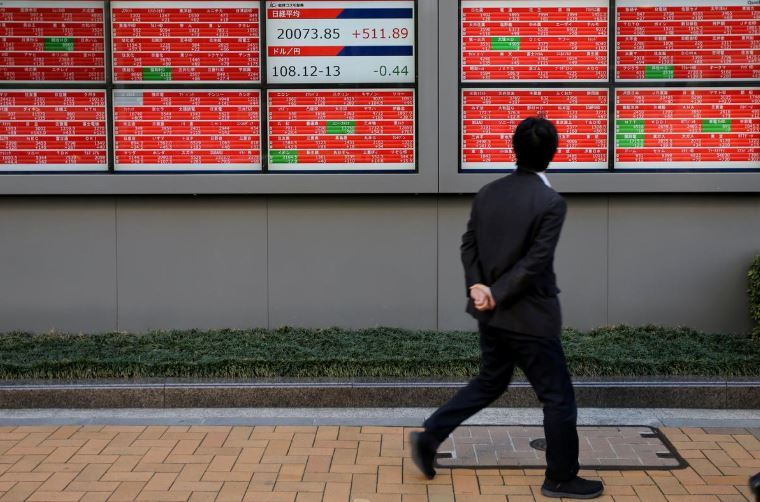Most Asian markets drifted lower in subdued trade on Friday as investors steeled themselves for the release of a crucial US jobs report that could have a major bearing on the size of an expected Federal Reserve interest rate cut.
With uncertainty over the China-US trade row put aside for now, this week has been dominated by speculation about the US central bank’s plans to address a weakening economic outlook, both at home and globally.
The jobs report is a closely watched gauge of the state of the world’s biggest economy and a below-forecast reading would ramp up hopes the Fed will announce a 50-basis-point reduction.
“A number in line with consensus probably delivers that July cut and I think that’s what the market wants to see,” Pepperstone Group head of research Chris Weston told Bloomberg Television.
But he warned: “If we get a really strong number, I think risk could really come off the table.”
The clamour for a Fed rate cut comes as central banks around the world take a more accommodative footing to offset economic weakness blamed on trade uncertainty, particularly the China-US standoff.
Equity traders were shifting uneasily ahead of the jobs release, with Hong Kong and Shanghai each down 0.3 percent and Tokyo ending the morning 0.1 percent lower.
Singapore, Taipei and Seoul were each 0.1 percent off as well, but Sydney, Wellington, Manila and Jakarta edged up slightly.
Oil prices struggle
Adding to the soft trading environment was the lack of a lead from Wall Street, which was closed for the Independence Day celebrations.
“If there is one thing financial markets hate it’s a delicate balance between risk-on and off, suggesting something will give shortly,” said Stephen Innes at Vanguard Markets.
“Over the short run, ‘risk-on’ sentiment should prevail on the back of the deluge on central banks easing. The Fed is critical to the ‘risk-on’ fever,” he said, adding that “now is the time to shift easing policy into high gear”.
Oil prices edged down as traders fret over the impact of weak global growth on demand, which is overshadowing this week’s agreement by OPEC and Russia to extend their output caps.
Even the US-Iran crisis has been unable to perk up the commodity, with news that Britain had intercepted an Iranian oil tanker near Gibraltar – suspected of carrying crude to Syria – providing only a little support.
The US praised the move but Tehran called it an “illegal interception”, adding to geopolitical tensions.
However, while Brent was slightly lower, WTI shed more than one percent, hit by an increase in US production.
“The US is now positioned to become a net exporter and is not bound by the (OPEC-Russia) production limit agreement. This could further drive prices lower,” said OANDA senior market analyst Alfonso Esparza.






